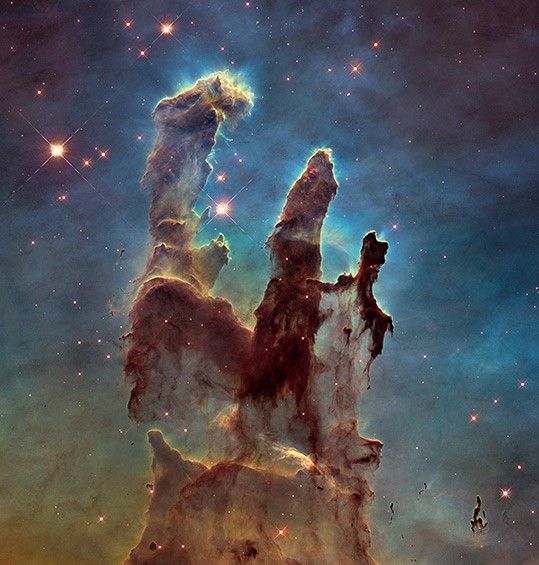1 min read
The Core of Peculiar Galaxy Arp 220

An image of the central part of the ultra-luminuous infrared galaxy Arp 220 taken with the WFPC on the Hubble Space Telescope. HST reveals a new complex structure within one arc second of the nucleus. While part of the this structure was seen in radio interfero-metric maps, most of the structure is new.
HST reveals a new class of object at the core: gigantic young star clusters which are ten times larger than any clusters observed previously. They were probably produces by the collision of two spiral galaxies. Stars are produced at a furious rate from the dust and gas supplied by the collision.
The HST images optically resolve two bright sources (first identified by radio observations) which are the two nuclei of the merged galaxies. Astronomers have never before seen such a "starburst galaxy" so close-up. The core of Arp 220 promises to be a unique laboratory for studying the late evolution of massive stars.
- Object NameObject NameA name or catalog number that astronomers use to identify an astronomical object.Arp 220
- Release DateJune 2, 1992
- Science ReleaseNASA’s Hubble Space Telescope Uncovers a Starburst Galaxy
- CreditCredit: E. Shaya, D. Dowling/U. of Maryland, the WFPC Team, and NASA
Related Images & Videos

The Core of Peculiar Galaxy Arp 220 (Ground-based vs. Hubble)
[right] A ground-based telescopic photograph of the peculiar galaxy Arp 220 (image taken by K. Borne, H. Levison, and R. Lucas at USNO Flagstaff Station, Arizona) shows a curious double-lobed structure. This structure was first interpreted as two galaxies merging together,...
Share
Details
Last Updated
Aug 17, 2025
Contact
Media
Claire Andreoli
NASA’s Goddard Space Flight Center
Greenbelt, Maryland
claire.andreoli@nasa.gov

































